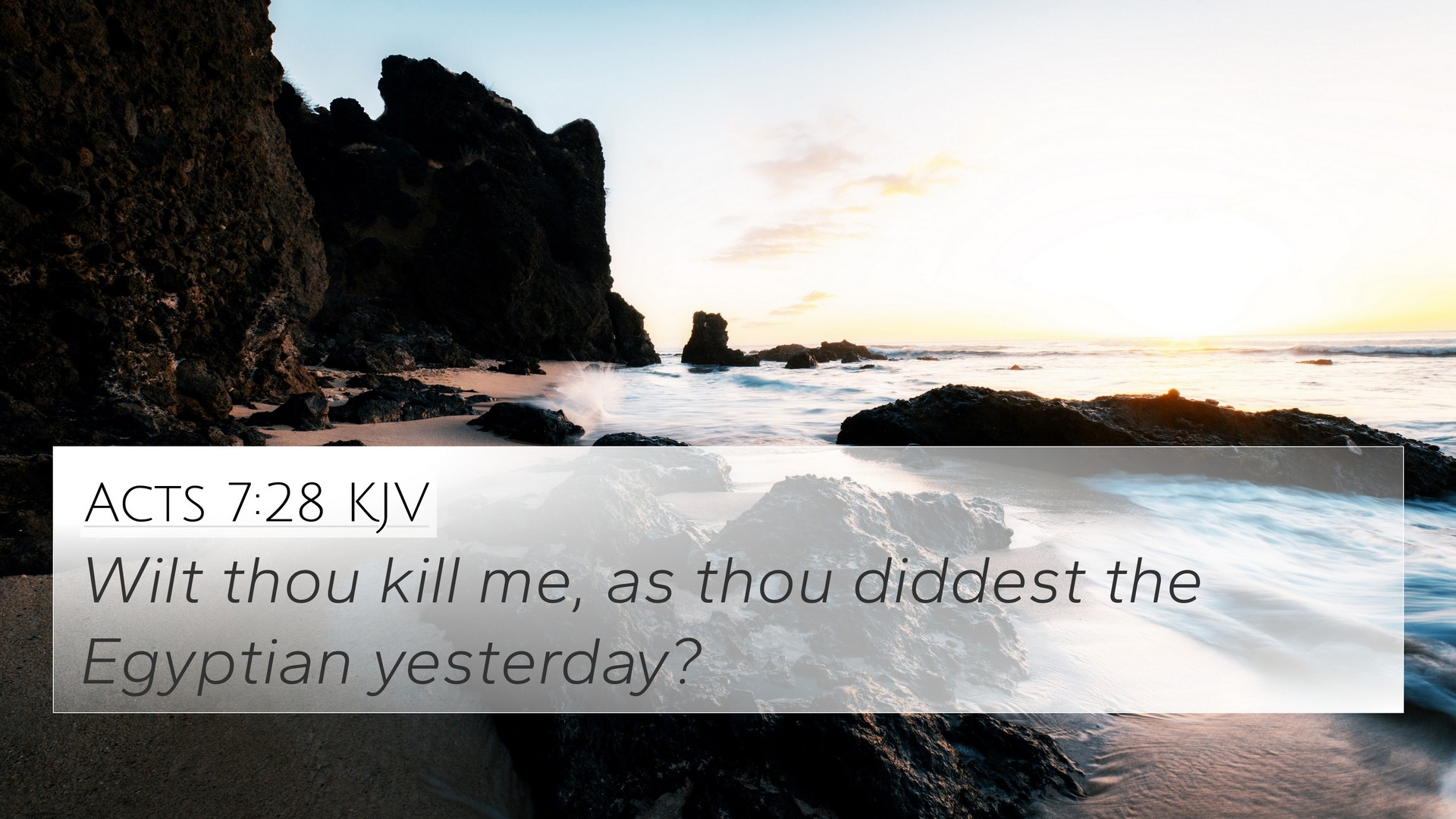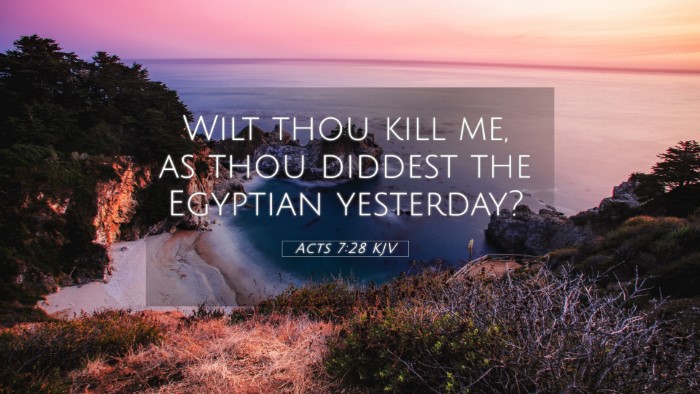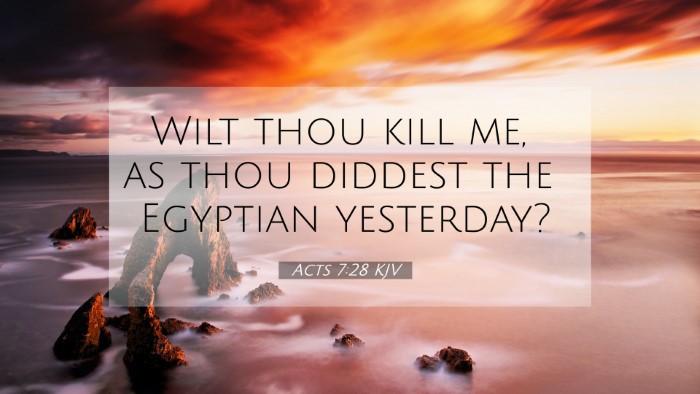Understanding Acts 7:28
Acts 7:28 states:
"Wilt thou kill me, as thou didst the Egyptian yesterday?"
This verse reflects a moment in the life of Moses, highlighting his experience and the fear that arose from his actions against an Egyptian. Understanding this verse requires examining its context and significance within the broader narrative of Moses and God's plan.
Contextual Analysis
Acts 7 is a pivotal chapter where Stephen recounts the history of Israel, focusing on the life of Moses as a deliverer chosen by God. The verse highlights the tension between Moses' attempt to help his people and the misunderstanding they had regarding his intentions.
Insights from Public Domain Commentaries
- Matthew Henry: Henry emphasizes the tragic irony in Moses’ situation. Despite his good intentions, he is met with violence and suspicion from the very people he sought to save. This serves as a metaphor for Christ’s own rejection by the Jews, pointing out the failure of his own people to recognize their deliverer.
- Albert Barnes: Barnes draws connections between this moment and the greater plan of God for Moses. He indicates that despite this violent rejection, God’s purpose would ultimately prevail, and Moses would still lead the Israelites out of bondage. This moment foreshadows the trials Moses would face as he tries to guide a reluctant people.
- Adam Clarke: Clarke offers a psychological insight into Moses' mindset, suggesting that he may have underestimated the situation, believing that his people would support him. The verse reflects both the complexity of leadership and the peril of acting prematurely without divine guidance.
Bible Cross-References
Acts 7:28 can be cross-referenced with various passages that illuminate its themes and context:
- Exodus 2:11-12: The initial act of Moses killing the Egyptian is detailed here, providing background to understand the circumstances of Acts 7:28.
- Hebrews 11:24-25: This passage explains Moses' choice to identify with his people rather than enjoy the pleasures of Egypt, underscoring his motivations.
- Matthew 23:37: Jesus expresses sorrow over Jerusalem's refusal to accept wisdom, paralleling the rejection Moses faced.
- John 1:11: "He came unto his own, and his own received him not," which echoes the rejection Moses experienced from the Israelites.
- Acts 7:35: This verse highlights how God sent Moses as a deliverer despite the initial rejection, pointing to God’s sovereign plan.
- Romans 11:7: Discusses Israel's rejection of God’s plan, mirroring the themes of misunderstanding and missed opportunity in Acts 7:28.
- 1 Peter 2:8: Alludes to Jesus being a stone of stumbling, reflecting the broader theme of rejection experienced by deliverers.
Thematic Connections
Acts 7:28 emphasizes key themes in the Bible:
- Rejection of God’s chosen: Just as Moses was rejected, so was Christ and many of the prophets.
- The duality of intention versus perception: Moses intended to help but was misjudged, just as many righteous acts are often misunderstood.
- Leadership Challenges: From Moses to modern-day leaders, the burdens of misunderstanding and backlash are constant trials faced by those who seek to guide others.
- God’s Sovereign Plan: Despite human action, God's purpose will ultimately prevail, a recurring theme throughout scripture.
Conclusion
In exploring Acts 7:28, we grasp the complexity of identity, leadership, and the prophetic narrative throughout scripture. By examining cross-references and thematic connections, we uncover the layers of meaning within this verse that resonate through the Bible.


